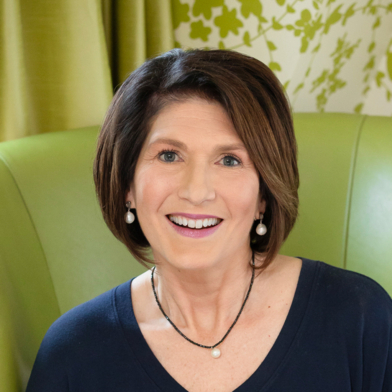
If you are an in-house legal marketer, chances are, “cheerleader” was not included in your job description. But motivating attorneys to engage, commit, and follow up can be a time-consuming, frustrating, and often exhausting responsibility. Want ideas and tips that have worked for others? Read on for takeaways from a roundtable session where Vanessa Schaefer, President of Clockwork Design Group, and Jacki Braga, Director of Marketing & Business Development at Morse, chatted with LMA members to pick their brains on this difficult topic.
Incentive Programs
Incentive programs and gamification techniques have been used for many years and throughout many industries to motivate employees. At law firms, these systems can be successful and play off attorneys’ natural competitiveness. Several attendees at the roundtable spoke of ways they have used incentive programs at their firms to get attorneys to engage in marketing and BD activities. Examples included:
- A point and reward system for PR, social media, blogging, etc. Based on points collected, attorneys can select branded swag like a fleece jacket, tumbler, backpack, etc., or can donate the point value to a charity of their choice.
- Invitations to special events/programs.
- A $250 cash incentive, given to associates for each article they write for the firm’s blog.
Tip: One attendee at the roundtable session said her law firm uses an app built for school systems (LiveSchool) to run/manage their incentive program.
Celebrate Successes
Positive reinforcement can be a strong motivator. Publishing “wins” via an internal newsletter, intranet, or even some kind of scorecard or leaderboard helps keep everyone apprised of what’s happening at the firm and brings attention to those attorneys who are most active. Competitions within practice areas or between practice areas can add to the excitement. Tracking successes also requires attorneys to actually report their transactions to marketing, which they often forget to do otherwise.
Collect data: Make sure to ask what phone calls came in, and track LinkedIn comments, likes, shares, so you can communicate that data.
Tip: If you are just starting a PR or BD initiative at your firm, start small. Begin with 1-2 people who already are active writers/speakers, then publish the results internally.
Win-Win Rewards
When an incentive is both a benefit to the attorney as well as the firm, that’s a win-win. One legal marketer recommended that attorneys receive access to specialized programming as an incentive. Programs can include specialized training, attending a conference, 6 months of 1-on-1 BD coaching, etc.
Figure Out Individual Drivers
Not all attorneys are driven by the same motivators. One senior marketer reported that she added a question at the end of attorneys’ individual business development plans that asked them to identify their top 3 motivators. She offered a list of about 20 options, including things like “interesting work,” “desire to win,” “success of clients,” “recognition,” “financial gain,” “work-life balance,” “learning something new,” “autonomy,” as well as a write-in option for “other.” The results showed a very wide range of personal drivers.
Tip: For more info, check out this book by Susan Fowler to learn the latest science on motivating people.
Setting Expectations
Law firms vary widely in how they address attorneys’ requirements for marketing and BD time.
- Some firms now mention BD activities in the offer letter (not necessarily required, but strongly recommended.)
- Some firms set a number of required hours for marketing/BD every year as part of the job description.
- Associate compensation and partner track is directly tied to documented BD activity at some firms.
- For those who don’t want to attend conferences or in-person events, they can write articles or support BD efforts in other ways.
Explaining the Benefits
Attorneys are prioritizing personal time much more now, so it can be hard to get them to attend after-hours events.
- It is important to educate attorneys to make them understand that although BD hours are non-billable, they lead to billable hours.
- Younger attorneys often want guidance and step-by-step instructions. One-on-one meetings are necessary to help build a personal game plan that works for that person. If it’s cookie-cutter and not a fit, you lose them.
- For those who attend conferences and events, collecting data afterward can be a struggle. A documented BD framework should be provided beforehand. Sharing data afterward via a presentation or article is required at some firms.
- “Random acts of marketing” don’t work. Explaining the strategy and process is crucial.
Getting Attorneys to Respond
We all know how hard it can be to get answers or information from a busy attorney. During the roundtable, marketers shared lots of ideas and techniques that they have found successful, such as:
- Make sure you are responsive to attorneys’ requests so they will be more inclined to reciprocate.
- Loop in their legal admin on the email — they know the attorney’s schedule and can often help get a response.
- Remind them why you are asking for something — how it benefits them, the firm, their client, etc.
- Send a separate, personal email (i.e. “how was your child’s birthday party?”) or add a personal line at the beginning of the email.
- One senior marketer admitted she would stalk attorneys at the elevator, and often get the answer she needed during the ride up or down.
- Another marketer said she has “walking meetings” or asks an attorney to grab a quick coffee. Meet them “where they are.”
- When it comes to BD homework, many attorneys need working calls where the marketer helps them do the tasks, they won’t do it independently. A calendar invite for a standing 10-minute meeting worked really well for some attorneys.
- Senior attorneys who understand the need and benefit of marketing/BD can be valuable advocates. Ask them to support your efforts, make a quick request or send a follow-up email for you, etc. If you are having an important marketing meeting, ask a senior attorney to speak afterward (but prep them before to make sure they highlight what is important.)
In closing, attendees of the roundtable expressed the need to personalize plans and techniques as much as possible, for each attorney. What drives and motivates one attorney may fall flat on another.




